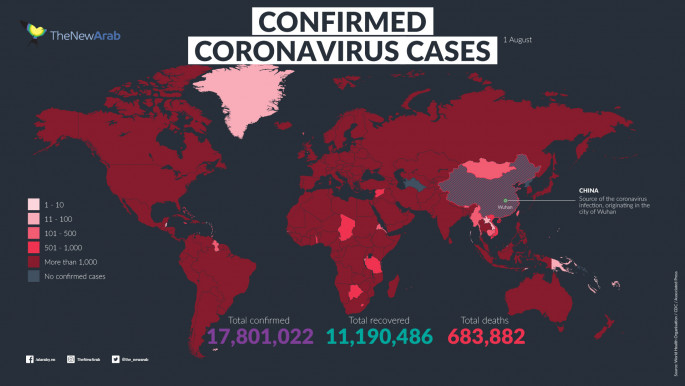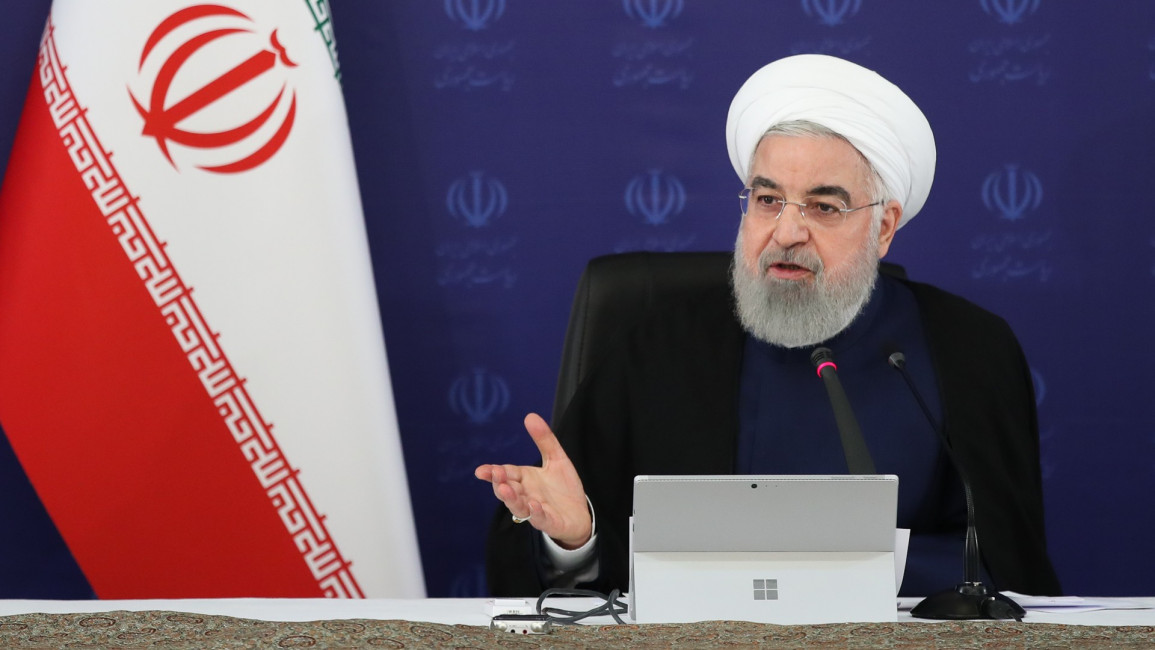Follow us on Facebook, Twitter and Instagram to stay connected
Iran plans 'cars-only' street protest to mark pro-Palestine Quds Day amid coronavirus lockdown measures
Iranians will be driving vehicles, rather than marching through the streets to prevent the spread of Covid-19, Iranian President Hassan Rouhani said on state television on Saturday.
The Revolutionary Guards will be in charge of organising the rallies, the president said, adding that the people who will join in the march can chant slogans and wave flags from their cars.
People across Iran participate in Quds Day – the Arabic name for Jerusalem – as a show of support for Palestinians.
Rouhani said Quds Day, held each year on the last Friday of the Muslim fasting month of Ramadan which falls on May 22, would go ahead as normal in 218 other towns and cities, where the coronavirus outbreak has been less severe than the capital.
“The coronavirus danger is still there, but our situation is better than before,” he said.
”We have crossed the main peak.”
As of Saturday, Iran’s death toll from the pandemic stood at 6,937 with 118,392 diagnosed cases, the health ministry said.
|
Iran slowly reopens
In spite of their fears over the coronavirus, hundreds of pious Iranians took advantage of the temporary opening of mosques Wednesday to pray at one of the holiest times of year.
The mask-clad faithful for the most part adhered to social distancing guidelines as they sat in designated areas of Reihanat Al-Hussein mosque, in west Tehran.
Clutching their own prayer mats and Qurans, they showed up with their families, including a couple with a baby, and appeared to be in high spirits.
Worshippers spilled out into grounds outside the mosque were disinfected by a sanitary worker in a hazmat suit who sprayed them as he walked among them.
But some of the gaps between those seated at the back appeared to be too close for comfort, and the Basij militia were on hand to ensure they kept apart.
"Of course, everybody is worried about the disease, even my own family," said one of the worshippers who gave his name only as Mahmoudi.
"When I decided to come they were concerned about me and I promised them to respect the directives," he said.
"So I came and saw that everyone is respecting the (social) distancing, otherwise, I wouldn't have stayed and I'd have gone back home."
Shrines will open for three hours in the morning and three hours in the afternoon, Rouhani said, adding that restaurants would also reopen after Ramadan and sports activities would resume without spectators.
Universities, but not medical schools, would reopen on June 6, Rouhani added.
 |



